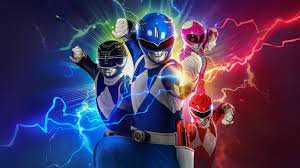
Firefly is one of the hidden gems of sci-fi TV in the thick of the universe. Created in 2002 by Joss Whedon, this space Western about the haphazard crew of the Serenity spaceship ran 14 episodes before it was cancelled by Fox.
It spawned a cult following, a film (Serenity) in 2005, and ongoing speculation about its unfinished promise, despite its short-lived nature. But Firefly finds itself being dwarfed by the likes of Star Wars or Star Trek. This 1,500-word opinion essay argues that Firefly is criminally underestimated due to its audacious narration, in-depth characters, and futuristic subject matter.
The answer to why we didn’t notice it earlier, rebuttals, the best moments, and why it is gaining closer cultural connections all will help us demonstrate how Firefly is worth inclusion at the top of the sci-fi history list.
The Misstep That Buried a Classic
The failure of Firefly began with its poorly managed launch. Fox broadcast some episodes out of sequence (with one of the mid-season stories, rather than the two-hour pilot). This negatively affected viewers by confusing them and leading to low ratings.
The show was cancelled after 11 episodes had aired (three additional episodes would later be released on DVD) because it could not find its footing in a pre-streaming world where networks desired immediate hits. At the time, critics were divided: some enjoyed its humorous dialogue and ensemble cast; meanwhile, others described it as a quirky, niche experiment that failed.
This bumpy beginning is symptomatic of a larger problem: TV is in a hurry to judge. Instead of building around word-of-mouth, which is typical of today’s streaming hits such as Stranger Things Firefly met its demise due to the impatience of broadcast TV.
Its peculiar mixture of gritty Western sensibilities and space opera, featuring cowboys on a spaceship, was far too daring for 2002 audiences who wanted to see fighting robots and explosive implosions. The result? A jewel buried in its infancy, thrown aside as a cult curiosity and not the classic of its genre it is.
Firefly Is Underestimated Because…
Firefly is an underrated movie, as it risked breaking sci-fi conventions by providing a story that is human-powered, rough, and real. In contrast to the polished utopian world of Star Trek, the world of Firefly is dirty, with future action taking place in a world where the harsh Alliance dominates outer planets, reminiscent of real-life struggles, such as inequality and resistance.
The crew of the ship Serenity, under the any-colour-you-have-it leadership of sardonic Captain Malcolm “Mal” Reynolds (Nathan Fillion), are not heroes, and they are smugglers and survivors, who make moral decisions in an amoral world. This reality-style presentation renders the show classic.
World-building, made on a minimal budget, is itself a lesson in subtleties. Whedon crafted a racially and culturally diverse future in which Chinese influences prevail: characters curse in Mandarin, signs are written in multiple languages, but there is no heavy-handed exposition.
However, the average viewer who wanted to see explosions overlooked this. Episodes such as “Out of Gas” demonstrate the genius of Firefly: a nonlinear narrative that shows how the crew came together, with Mal struggling alone and featuring flashbacks of hope and loss. It is emotionally dense, which makes the show more than just a series of spaceships.
The other strength is its ensemble cast. Kaylee (Jewel Staite) is sunny and optimistic, while River Tam (Summer Glau) has a haunting mystery about her; however, each character feels alive. Whedon’s barbed, quoteable lines, such as, I want to misbehave, established a guide to movies such as Guardians of the Galaxy.
However, since Firefly contained both episodic and slow-burning arcs, it was unfocused. In reality, this format, which is now prevalent on streaming services, was well ahead of its time, incorporating independent stories with more profound narratives.
Debunking the Haters: Why Critics Got It Wrong
According to sceptics, the cancellation of Firefly is evidence that flaws existed in the show; good shows do not get cancelled. They describe its Western sci-fi blend as gimmicky, its mood as patchy (jumping between comedy and drama), and others speak of its characters, such as Inara, a high-class companion, being stereotypical. Some accuse it of being juvenile in humour or finding romanticism in problematic anti-authority in Mal.
These are misplaced criticisms. It wasn’t the quality that got cancelled, it was network sabotage. The disjointed order in which Fox aired the show killed momentum, as did other cancelled hits such as Pushing Daisies. The genre hybridisation was no gimmick and was based on Star Wars and traditional Westerns to make something new. Tone shifts? That reflects the aspect of life that is messy, now glorified in shows like The Mandalorian.
Firefly was a feminist of its time. Inara (Morena Baccarin) is a professional in her own right and a force in a world dominated by men. Zoe (Gina Torres) is a non-stereotypical warrior, just like any man. Assessment by 2025 standards is out of context-Firefly prefigured empowered women leads in Killjoo and Westworld.
The comedy, exemplified by the crass jokes of Jayne (Adam Baldwin), serves as social commentary, satirising class differences. Regarding the rebellion of Mal, the show doesn’t dwell upon simplistic heroism, but criticises both the tyranny of the Alliance and the shortcomings of the Independents. Interludes, such as the train job, compel the crew to grapple with morality, and this is richer than mere dogma.
Moments That Prove Firefly’s Genius
These are some of the main scenes that make Firefly sparkle. Shindig hits the nail on the head: Mal invades a high-society party, and a sword fight breaks out over the honour of Inara. It contrasts the upper class with the rough frontier and humorously expresses the issue of classes. Stanzas such as the one that reads ‘Mercy is the mark of a great man… Guess I’m just a good man’ is classic, but they were used to show the heart of Mal.
The finale, “Objects in Space,” is a philosophical thriller. A bounty hunter stalks River, and her psychic trauma as the subject of Alliance experiments appears in surrealistic, poetic scenes. River’s line, “I’m not on the ship. I’m in the ship”, explores identity and existence, on par with the depth of Black Mirror. Summer Glau is terrifying in her role, establishing her as a science fiction icon.
The show is powered by characters. There is a spiritual gravity in Shepherd Book (Ron Glass), who hints at an obscure past. Kaylee is a significant source of warmth to offset the cynicism of the crew, and her love affair with Simon (Sean Maher) provides poignant interest.
The dilapidated sets, odds-and-ends costumes, and bluegrass score by Greg Edmonson sprang off every scene, as Serenity takes off and as the crew eat their dinner together. These facts establish a family atmosphere that sci-fi is unlikely to have, placing relationships over combat.
A Cultural Comeback: Why Firefly Resonates in 2025
Firefly is getting a new life today. The resistance and found family themes explored on Disney+ and Hulu have wormed their way to Gen Z viewers, who live in a polarised world. Its warnings about the dangers of power concentrated in a few firms seem timely when discussing tech corporations and state tyranny, in series such as Andor and The Expanse. The diverse cast and flowing energy, Inaras’ empowered sexuality, and the power of Zoe are visionary compared to the sci-fi of the 2000s.
Community spirit endures with the “Browncoats” fandom’s cottage industries of cosplay at San Diego Comic-Con and charitable drives. The 2005 film Serenity effectively closed the gaps in the series, and critics praised the movie’s emotional payoff, despite its failure to establish a franchise.
Revival rumours divert attention with recent posts on X, and critics on sites like Rotten Tomatoes now hail the power of Firefly. It is shady in its dialogue, shiny as slang, and episodic in its model.
However, Firefly is still an underrated show without the Emmy wins and reboots of other shows, such as Buffy. Its mysticism is its short-run fuel, and its notoriety is its constraint. Its succinct story is a breath of fresh air, a whole story in a franchise-dotted future of 2025 where you want more.
Why Firefly Belongs in the Sci-Fi Pantheon
Firefly is not only underestimated, but it is the pioneer, the one that reinvented sci-fi. Through its refutation of the critiques, highlighting of the best moments and its growing relevancy, we find a show that was ahead of its time. Its history shows that TV lives on risk, but not formula.
Play it live, and you will be a part of the Browncoats asking why it has not been on the airways all this time. This is a 1487-word piece that aims to catapult Firefly into the limelight it rightfully deserves. Let’s make it a trend.

